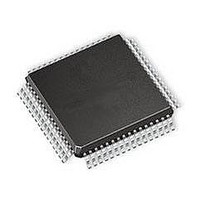SI3225-G-GQ Silicon Laboratories Inc, SI3225-G-GQ Datasheet - Page 64

SI3225-G-GQ
Manufacturer Part Number
SI3225-G-GQ
Description
IC PROSLIC/CODEC DUAL 64TQFP
Manufacturer
Silicon Laboratories Inc
Series
ProSLIC®r
Datasheet
1.SI3200-G-FSR.pdf
(112 pages)
Specifications of SI3225-G-GQ
Function
Subscriber Line Interface Concept (SLIC), CODEC
Interface
GCI, PCM, SPI
Number Of Circuits
2
Voltage - Supply
3.3V, 5V
Current - Supply
65mA
Power (watts)
941mW
Operating Temperature
-40°C ~ 85°C
Mounting Type
Surface Mount
Package / Case
64-TQFP, 64-VQFP
Includes
Battery Switching, BORSCHT Functions, DTMF Generation and Decoding, FSK Tone Generation, Modem and Fax Tone Detection
Lead Free Status / RoHS Status
Lead free / RoHS Compliant
Available stocks
Company
Part Number
Manufacturer
Quantity
Price
Company:
Part Number:
SI3225-G-GQ
Manufacturer:
Silicon Laboratories Inc
Quantity:
10 000
Company:
Part Number:
SI3225-G-GQR
Manufacturer:
Silicon Laboratories Inc
Quantity:
10 000
Si3220/25 Si3200/02
3.20.2. Oscillator Frequency and Amplitude
Each of the two tone generators contains a two-pole
resonant
frequency and amplitude, which are programmed via
RAM addresses OSC1FREQ, OSC1AMP, OSC1PHAS,
OSC2FREQ, OSC2AMP, and OSC2PHAS. The sample
rate for the two oscillators is 8000 Hz. The equations
are as follows:
where f
where Desired Vrms is the amplitude to be generated;
n = 1 or 2 for oscillator 1 or oscillator 2, respectively.
For example, to generate a DTMF digit of 8, the two
required tones are 852 Hz and 1336 Hz. Assuming we
want to generate half-scale values (ignoring twist), the
following values are calculated:
OSC1PHAS = 0
coeff
64
OSCnAMP
2
OSC1FREQ
= cos (2 π 1336 / 8000) = 0.49819
n
is the frequency to be generated;
oscillator
Counter
OSCnTA
coeff
Modulo
OSCnTI
16-Bit
OSCnFREQ = coeff
8 kHz
Clock
coeff
=
n = "1" or "2" for Tone Generator 1 and 2, respectively
1
-- - 1 coeff
4
1
=
n
----------------------- -
1
=
OSCnTIEN
OSCnPHAS = 0,
OSCnTAEN
0.78434 2
= cos(2 π f
–
+
cos
coeff
circuit
⎛
⎝
2π852
---------------- -
OSCnTA
OSCnTI
8000
OSCnEN
Expire
Expire
*Tone Generator 1 Only
×
(
(
14
n
2
with
/8000 Hz),
15
⎞
⎠
)
n
=
Cross
Logic
=
–
Zero
x (2
1
Logic
Logic
12851
0.78434
INT
INT
Figure 35. Tone Generator Diagram
)
a
×
14
ZEROENn
Desired Vrms
--------------------------------------- -
);
programmable
ENSYNCn
1.11 Vrms
=
Zero Cross
OSnTIS
0x3233
Logic
Load
OSnTAS
OSnTIE
OSnTAE
REL*
Register
Enable
Rev. 1.3
Load
Resonant
Two-Pole
Oscillator
OSC2FREQ = 0.49819 (2
OSC2PHAS = 0
The preceding computed values are written to the
corresponding registers to initialize the oscillators. Once
the oscillators are initialized, the oscillator control
registers can be accessed to enable the oscillators and
direct their outputs.
FSK
FSKAMP0/1,
equations and changing the sample rate from 8000 Hz
to 24000 Hz.
3.20.3. Tone Generator Cadence Programming
Each of the two tone generators contains two timers,
one for setting the active period and one for setting the
inactive period. The oscillator signal is generated during
the active period and suspended during the inactive
period. Both the active and inactive periods can be
programmed from 0 to 8 seconds in 125 µs steps. The
active period time interval is set using OSC1TA for tone
generator 1 and OSC2TA for tone generator 2.
8 kHz
Clock
OSC1AMP
OSC2AMP
=
=
0x590
0x942
OSCnFREQ
OSCnPHAS
OSCnAMP
frequency
=
=
are
1
-- - 0.21556
4
1
-- - 0.50181
4
-------------------- -
1.78434
-------------------- -
1.49819
coefficients,
calculated
Routing
Signal
14
×
×
) = 8162 = 0x1FE2
(
(
2
2
ROUTn
15
15
–
–
from
1
1
FSKFREQ0/1
)
)
×
×
0.5
0.5
to RX Path
to TX Path
the
=
=
1424
2370
oscillator
and













